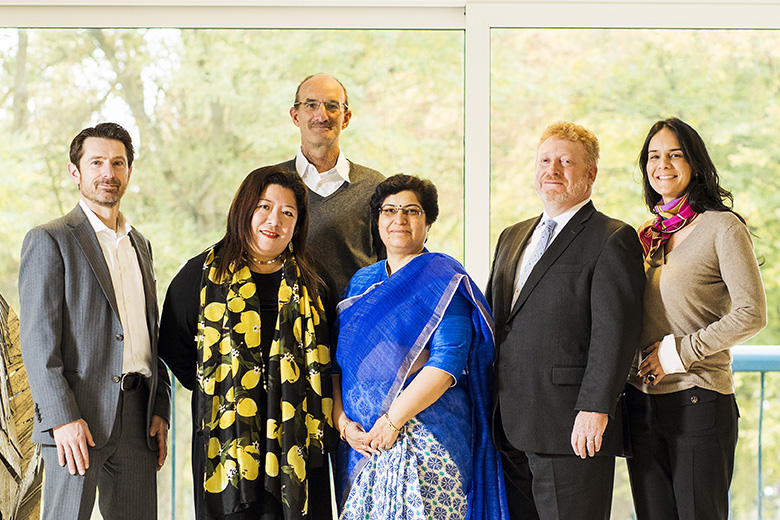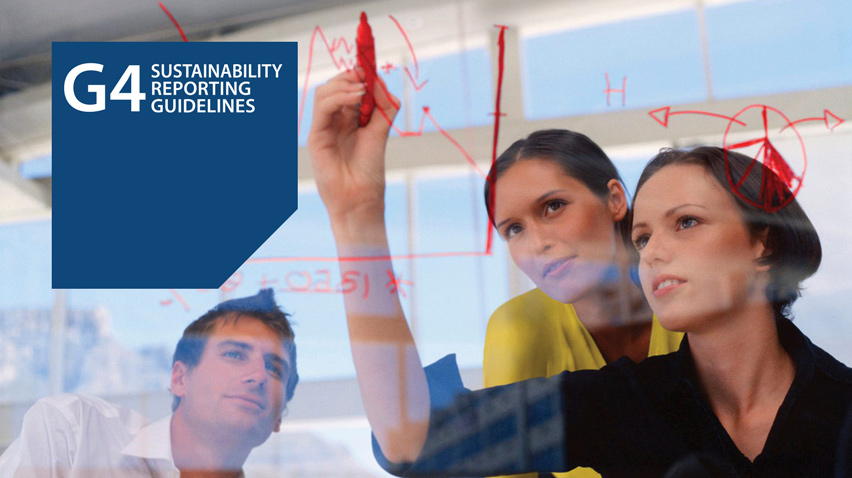External Review Committee
In 2005, Shell established an External Review Committee to help evaluate the quality and credibility of the annual Shell Sustainability Report and to recommend improvements to our sustainability performance.

External Review Committee: (from left to right)
Ed Whittingham, Executive Director, Pembina Institute, Canada
Bernice Lee, Head of Climate Change and Resource Security Initiatives, World Economic Forum, Hong Kong
John Gardner, Vice President and Chief Sustainability Officer, Novelis Inc, UK
Seema Arora (Chair), Executive Director, Confederation of Indian Industry, India
Mark Brownstein, Vice President, Climate and Energy Program, Environmental Defense Fund, USA
Lavinia Hollanda, Senior Energy Consultant and Advisor, Brazil
Members of the External Review Committee (ERC) come from a range of professional backgrounds, but they share the following expertise and experience:
- globally respected, independent and pragmatic in their approach;
- familiar with, and able to convey, the perspectives of Shell stakeholder groups or are experts in the main sustainability challenges that Shell faces;
- broadly representative of regions of strategic importance to Shell;
- reasonably familiar with the oil and gas industry, Shell, and related sustainability issues; and
- capable of adding fresh perspectives to Shell’s thinking and reporting on sustainability.
Committee members are asked to serve for three years, with two or three new members appointed each year. This is long enough to develop the necessary understanding of the issues and process, without diminishing the independence or external perception of independence critical to the ERC’s effectiveness. The intention is that the Committee should bring a balance of experience and perspectives.
ERC recommendations in 2015
Each year, the ERC is asked to present its independent opinion on the Shell Sustainability Report. An example is provided below of some of the recommendations included in the ERC’s letter in the Shell Sustainability Report 2015 and Shell’s response. The ERC recommendations have been fundamental in shaping this current report. (See table).
ERC recommendations and our responses
ERC recommendation in 2015
How Shell responded in the 2016 report
ERC recommendation in 2015
Future reporting
The ERC would like to see a more strategic conversation on the role of fossil fuels, and the challenges posed by volatility of the oil price. The ERC is also anticipating a commentary on the acquisition of BG Group.
How Shell responded in the 2016 report
In About Shell and Energy transition, we outline the role of fossil fuels in the energy transition and how our refreshed strategy will make Shell a more resilient company.
Details on the BG integration can be found in About Shell and How sustainability works at Shell.
ERC recommendation in 2015
Energy transition and climate change
The ERC encourages Shell to disclose more precisely how its strategy aligns with this global ambition as stated at the COP21 in Paris and to provide more disclosures on Shell’s thinking about the role of natural gas (and other fossil fuels) beyond 2050.
How Shell responded in the 2016 report
In 2016, Shell published the Shell: Energy Transitions and Portfolio Resilience report and the Scenarios supplement A Better Life with a Healthy Planet: Pathways to Net-Zero Emissions.
Shell’s refreshed strategy is detailed in About Shell, Natural gas and Lower-carbon alternatives.
ERC recommendation in 2015
Natural gas and methane
The ERC believes that the report understates the magnitude of the climate problem posed by methane and the risk this represents to Shell. The report would benefit from greater clarity on how managing methane emissions and the related risks within its operations are reflected in Shell’s business strategy.
How Shell responded in the 2016 report
The Natural gas and Managing methane emissions sections of this report set out our efforts in detecting and managing our methane emissions.
ERC recommendation in 2015
Nigeria
In light of the fatalities in 2015, the ERC urges Shell to disclose more details on measures taken to avoid future incidents. They also ask Shell to be more transparent around the measures taken to implement the UNEP report recommendations.
How Shell responded in the 2016 report
In Our activities in Nigeria and Safety, we explain our safety approach and focus.
This report includes an update on our activities in relation to spill prevention and clean up in Nigeria and the Ogoniland region.
Review process
The Committee meets in person three times annually (in The Hague, the Netherlands), and on other occasions by teleconference. It holds meetings with Shell senior management, including Shell’s Executive Committee, to discuss Shell’s approach to sustainability and our reporting. When reviewing the sustainability report, the ERC focuses on three main questions:
- Has Shell selected the most important topics for the report?
- How well has the report dealt with these topics and responded to stakeholder interests?
- Has Shell provided sufficient information and access for the ERC to do its job effectively?
This review does not include the verification of performance data in the sustainability report, or the information on which the case studies in the report are based. Separately, the ERC provides Shell with its observations on the company’s strategy and sustainability performance.
To acknowledge the ERC’s time and expertise an honorarium is offered, payable either to the individual members, their organisation or their charity of choice. They are also offered reimbursement for their expenses.
